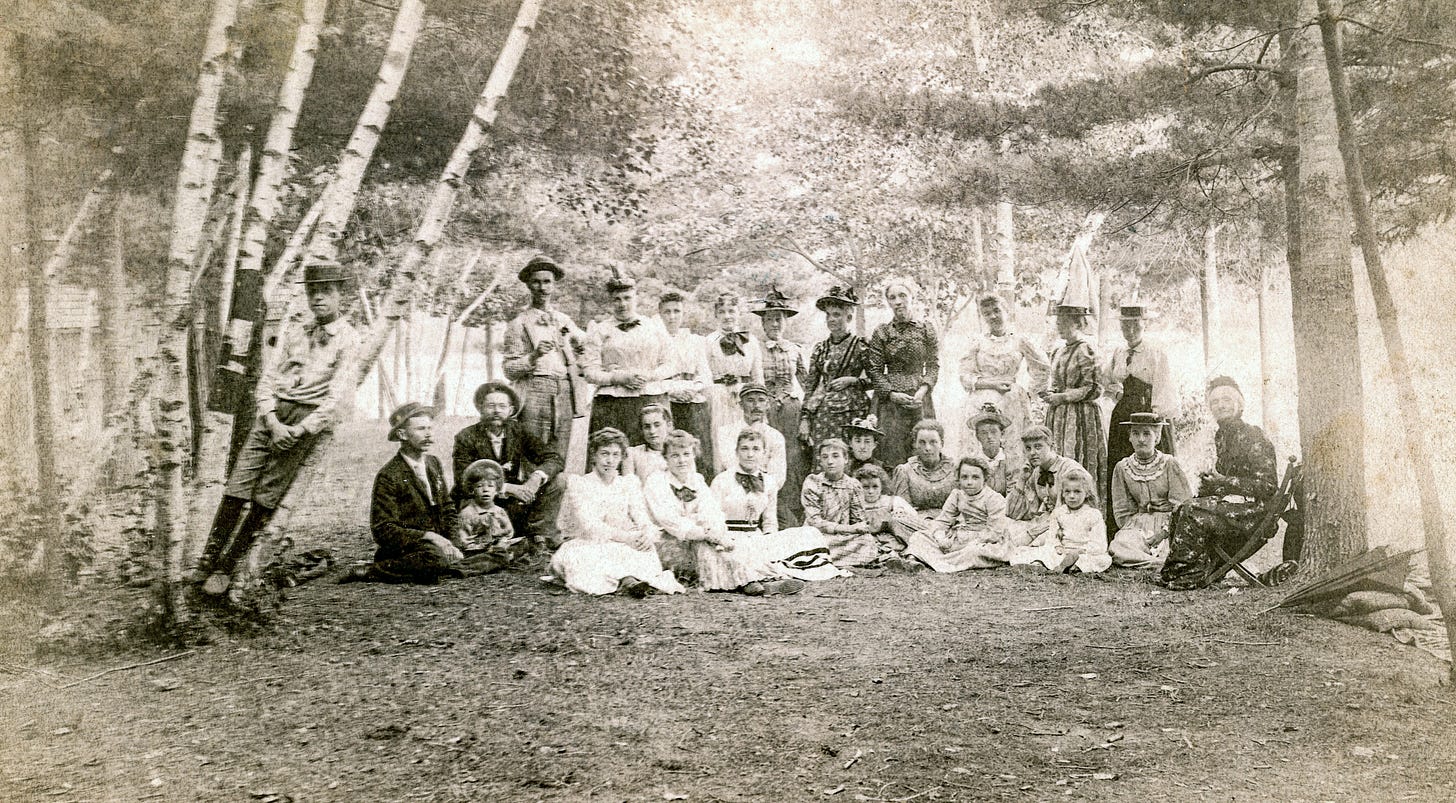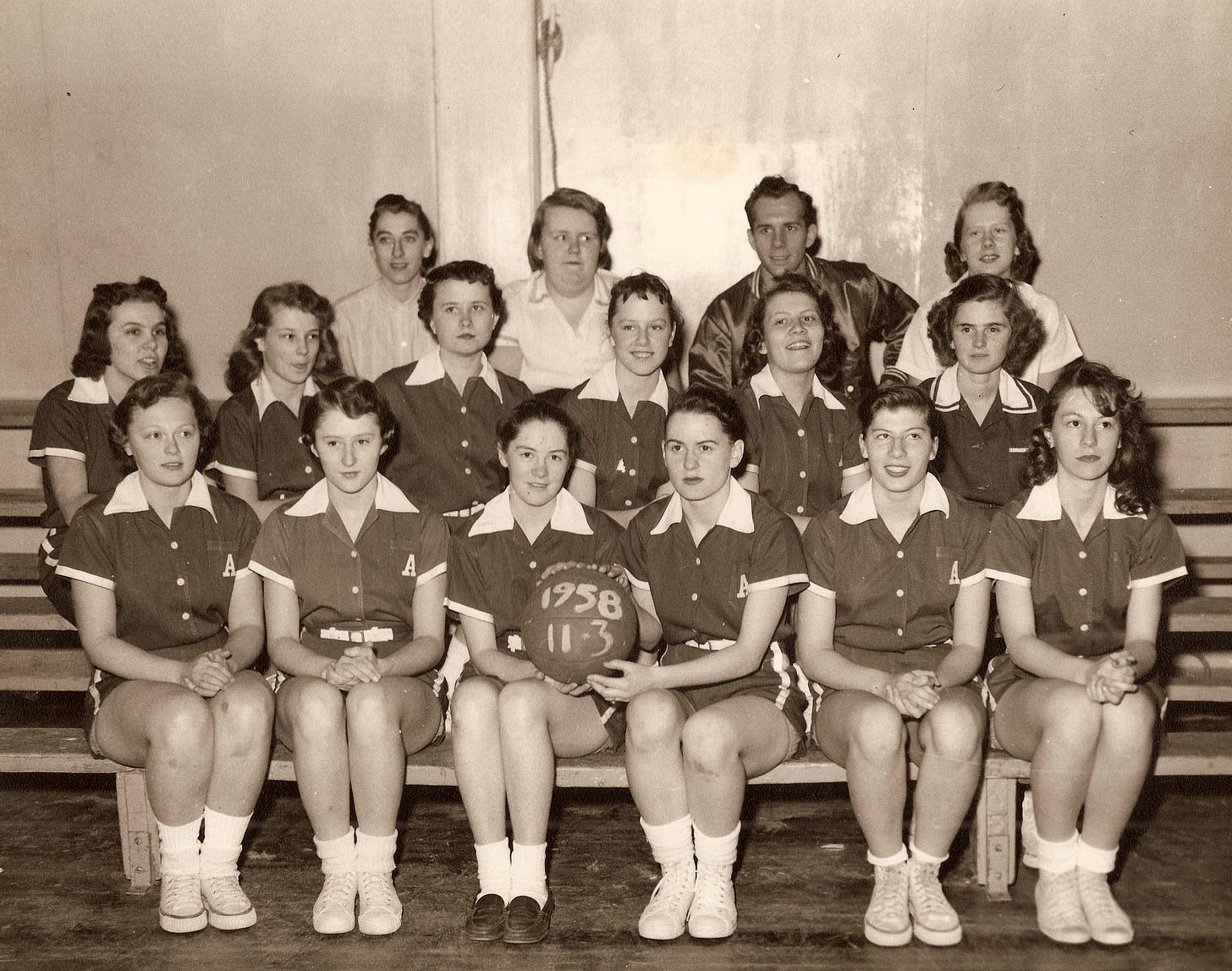Members of the Tarbell family are in this photo

Charles Lempel Tarbell - 1909
Postmaster Twenty-One Years.
Charles Lempel Tarbell, whose death occurred at an early hour, Monday morning, was the youngest of three children of Joseph Augustus and Louisa (Davis) Tarbell. Death was due to a gradual physical decline. caused by kidney trouble, and was possibly hastened at the last by acute indigestion. He was in his usual health Thanksgiving and spent the day pleasantly with his daughter, Mrs. Fred A Cushing, and family at Center Village. He was born in Mason, June 8, 1849, and received his early education in the schools of his native town. When about 18 or 20 years old he came to New Ipswich and for several years. served as clerk in the old corner store for Charles A. Whitney. So well did, he all his position that he became a general favorite with the patrons of the store and received a handsome gift from his employer when he left to go into business with his brother. George A. Tarbell, who was then proprietor of a grocery and dry good- store in Bank Village. His next venture was in Washington, D. C.. as Clerk for Reuben Clark, son of Benjamin Clark, of this town.
After his return North, he married on April 22, 1873, Miss Mary Helen Flagg, and settled at East Wilton where for five years or more he conducted a grocery store. March, 1884. after a short residence in Clinton. found him and his family comfortably settled In Bank Village, as successor to his brother in the village store. At that time New Ipswich had but one post office, and it was through his effort, assisted by Representative Moses Clark of Wilton, that the Bank Village office was established. He was Its first postmaster and for 21 years managed the office in connection with his store. About 12 years ago he purchased the home he has since occupied He loved his home and the beautiful in nature around him. To the last he retained a warm friendship for the place of his birth. He had strong political opinions and was strong and in- flexible in his adherence to them. He was interested in his townspeople and kept posted in the march of events both near and distant, through careful reading.
He is survived by his wife, two daughters, Mrs. Fred A. Cushing of Center Village, and Mrs. Everett Winship of Rindge, and five grandchildren. Philip M. and William T. Thompson and Helen, Ruth and Kenneth Winship.
Memories of Our School Days at New Ipswich Appleton Academy
Are you an Appleton Academy alum who relishes reminiscing about your time in high school? Or perhaps, your parents and grandparents shared stories about their Appleton school days (before Mascenic became the local high school in 1969) and you’d like to hear more? And even if you’re new to town, you may enjoy learning about Appleton Academy from local alums who attended the well-regarded town high school in the 1950s and 1960s. If so, you are welcome to attend a loosely-moderated discussion hosted by the New Ipswich Historical Society on Saturday, November 18, from 1 p.m. to 2:30 p.m. at the New Ipswich Library (6 Main Street). This program, which is free and open to the public, is part of an ongoing NIHS effort to chronicle important aspects of New Ipswich’s history in the 20th-century. It will be video-recorded and eventually available on the NIHS website.




Harold Foster was a professor of forestry at UNH . Charles Preston owned the Preston farm in Bank Village on Old Country Rd, and John Foster owned the land around the Bank Village dam. William Greene bought this land, built the dam for Columbia Mills, and thus creating Waterloom Pond.
In 1892 a post office was established in Smithville.